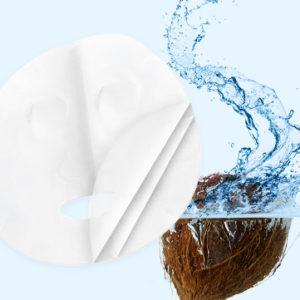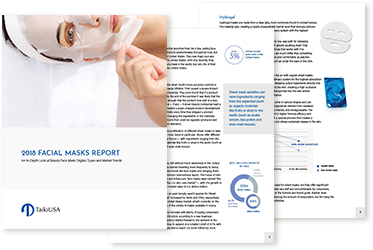 Biocellulose just might be one of the hottest mask categories in the near future. According to a recent report by Transparency Market Research (TMR), biocellulose facial masks are projected to show stronger growth than other mask materials. These masks have high appeal to ingredient-conscious consumers. Formulated with nata de coco, a fermented coconut fruit extract, biocellulose masks are made from a natural material and contain no parabens, sulfates or phthalates.
Biocellulose just might be one of the hottest mask categories in the near future. According to a recent report by Transparency Market Research (TMR), biocellulose facial masks are projected to show stronger growth than other mask materials. These masks have high appeal to ingredient-conscious consumers. Formulated with nata de coco, a fermented coconut fruit extract, biocellulose masks are made from a natural material and contain no parabens, sulfates or phthalates.
They deliver higher moisture content and increased hydration than many other masks by creating a barrier that almost completely blocks any evaporation. The gel-like biocellulose material fits tightly to the face, creating a seal and acting like a second skin.
There are some potential drawbacks to watch out for, however. Biocellulose materials come predominately from Vietnam and Thailand, which can make producing the masks more expensive. The fermentation itself can also be more susceptible to mold, bacteria and fungus growth, which can add to the challenge of making a safe product for consumers.
If your brand is interested in adding biocellulose masks to your beauty or skincare line, it is important to partner with a supplier that is educated on the distinctions of biocellulose materials. This partner should advise you on the best way to deliver the benefits of biocellulose to your consumers and is also have a strong focus on safe practices and sterilization.
For more about biocellulose masks visit view the Facial Sheet Mask Report.

Want to learn more about the facial sheet mask industry? Download this exclusive report for an in-depth look at the rise of the facial mask industry, the science behind beauty mask technology, the various types of sheet masks and patches and the benefits and recommendations for retailers.